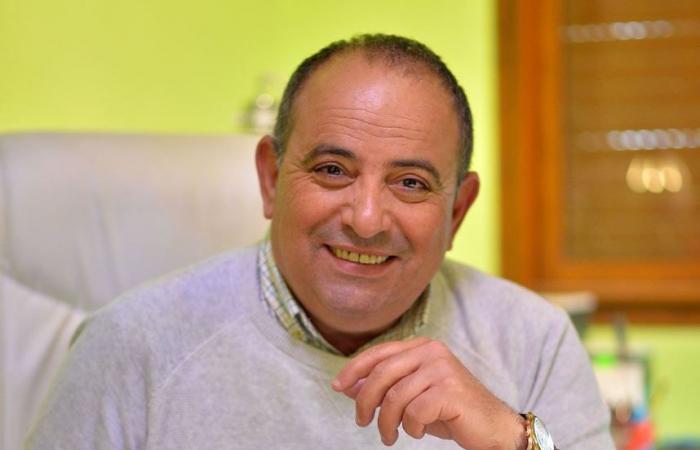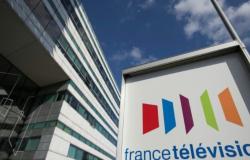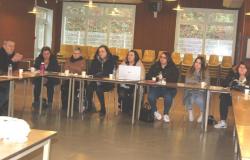Between disappointed hopes and thwarted ambitions, renewable energies in Morocco are struggling to retain young talents. Dr Saïd Guemra, expert in energy management, takes stock of the situation: high-level skills find themselves without outlets, while Europe and other foreign markets attract with open arms these profiles trained in the energy transition .
For more than a decade, Morocco has displayed great ambitions in terms of energy transition, becoming an internationally recognized player thanks to emblematic projects like Noor Ouarzazate. This dynamism has been accompanied by a transformation of the academic landscape with the emergence of specialized training and highly qualified profiles in the fields of renewable energies and energy efficiency. However, this apparent success hides a more worrying reality: a local market that is still underdeveloped, unable to absorb this talent.
Read also | Dr Saïd GUEMRA: “The best that can happen to Moroccans is a definitive return to GMT”
The contrast is stark: while Europe and other regions are experiencing rapid growth in the renewable energy market, offering many professional opportunities, Morocco is experiencing an increased brain drain. We are in a context where, each year, many young graduates seek opportunities abroad, thus fueling a skills drain which further weakens the development potential of the national energy sector.
In this interview, Dr Saïd Guemra, expert in energy management, analyzes the structural challenges that hinder the creation of a sustainable market for renewable energies in Morocco. It highlights the reasons for this exodus of talent and proposes concrete solutions to boost the sector: regulatory reforms, support for local projects and promotion of national skills. A call for urgent action so that the Moroccan energy transition becomes not only a strategic lever, but also a sustainable source of jobs and economic development.
Challenge – Can you take stock of the skills in the renewable energy and energy efficiency sector?
Saïd Guemra: Before talking about an inventory of skills in the energy efficiency and renewable energy sector, we must go back to 2009 and beyond, to understand the energy transition market and its evolution to date . The energy transition plan launched by His Majesty the King had revolutionized university training, through the introduction of new training in the field of the green economy. Several laboratories have equipped themselves with renewables, and a large number of very serious and high-quality training courses have been able to see the light of day. Result of the journey: Morocco was able to have very well trained profiles in energy efficiency and renewable energy techniques. But in front of these promotions, there was a small market, especially in renewables, and practically none for energy efficiency.
This market was able to absorb a few winners in small solar installation companies, but the rest were unable to find employment in their specialty, which forced the majority to retrain in other fields such as maintenance or quality, for those who were lucky enough to find a job in the industry. The rest are unfortunately unemployed. It must be said that we have the greatest difficulty finding internships for these young people in this field, what can we say when we have to find them a job. What has been observed in recent years is the desire of these young people to leave Morocco for countries where the energy transition works better.
Read also | Offshore renewable energy: Agadir’s other project
What motivates these departures abroad?
Europe has set itself the objective of reducing its greenhouse gas emissions by 55% by 2030. This objective, coupled with national objectives by country, has given rise to a formidable market in terms of reducing consumption. using energy efficiency and the introduction of renewables. New professions have developed: the profession of energy manager in companies, which has enabled the recruitment of thousands of graduates; energy service companies and third-party investors; remote energy management companies using Energy 4.0 techniques; startups that develop new energy efficiency products based on R&D work.
In the field of renewables, there are two categories of activities: renewables for large projects such as onshore wind power, offshore wind power, large photovoltaic projects and many other large innovative activities. The second category relates to small power, domestic and industrial projects. Installations in the field of small renewables number in the millions: in Germany, more than 3 million; in Australia, 4 million. It must be said that it is the small renewable market that creates the most jobs. Large projects create jobs during construction, but permanent employment opportunities remain very limited. These major developments abroad obviously attract our winners, who do not find employment opportunities in Morocco. We are seeing departures for France, Spain, Canada and many other countries such as Germany, which is making announcements to find candidates to support its energy transition.
Read also | Morocco: Jbel Lahdid wind turbines increase renewable potential to 45%
What endogenous causes explain this situation?
Quite simply because the market could not be created. For energy efficiency, we have 20 to 25 energy audit companies, whose role remains limited to consulting. As a result, actual achievements in terms of reducing energy bills are practically non-existent. Even if Morocco has a goal of reducing its energy consumption by 20% by 2030, to date, there are no convincing results that can demonstrate even 1% of this saving. For renewables, Morocco has chosen to develop certain large projects very timidly, with an average of 200 MW per year between 2010 and 2015. According to the latest report from the Competition Council, 98 projects within the framework of the Law 13/09 were refused and would have led Morocco to more than double the current renewables, obviously creating jobs and providing green energy to the country which would have made it possible to reduce its energy dependence. For small low and medium voltage projects, households and industries, which create the most jobs, you should know that we live in a situation of non-regulation. The laws do not have implementing decrees, medium voltage electricity transmission rates are non-existent. It should also be noted that even if these laws applied, the market will not be born, to the extent that they will limit the market to very few achievements: limitation of the 20% injection of the producible of the future law 82/ 21, while it is 100% of production in the majority of countries; limitation of medium voltage by envelopes in GWh/year; exclusion of medium voltage renewable projects of less than 5 MW.
4- What can be done to retain these talents?
To retain these talents, a market must be created, and this market can only be created by boosting the energy transition. It’s really sad to see that none of our R+2 buildings are equipped with renewable energy, and that out of 120 industries in an industrial zone, only two companies are equipped with renewable energy. This can only be done by finding the right balance between distributors and consumers, a function which I hope can be managed by the New Energy Regulatory Agency (ANRE).
Promoting the right of Moroccans, citizens and businesses, to produce renewables for their own uses is a notion that cannot be applied with future laws. New regulations are needed, especially for low and medium voltage. We must innovate in terms of energy efficiency, by creating new energy monitoring companies in industry, encouraging the function of energy manager, and financing renewables for households. A very large number of measures must be taken to boost the Moroccan energy transition. The cost of photovoltaic panels has fallen sharply and there is no need for subsidies, like Tunisia, but just a regulatory framework that can allow Moroccans to benefit from renewables like the rest of the countries in the world. Under these conditions, we can witness the birth of a market that can retain our young people in Morocco.
Dr Saïd Guemra is an expert consultant in the field of energy management 4.0. He holds a doctorate in electronics from Clermont II University. He began his career within the company Alstom, manufacturer of the TGV, and joined the American company RCG Hagler & Bailly, specialized in the field of energy management as part of the first energy efficiency program in Morocco . He is also a professor at MV University. In 2003, he filed a patent relating to smart meters and created the company GemTech in order to develop the 4.0 energy management activity, which to date holds the record for a 52% reduction in bills. electricity from an industrial unit in Casablanca. Dr Saïd Guemra has carried out several major energy efficiency programs with USAID, the European Union, the World Bank and the EBRD. He is also energy advisor to the Association of the Industrial Zone of Tangier, ONDA and Tanger Med.






